Key Resources for Workplace Equality
Race at work: key resources for workplace equality
Our Race at Work resources offer practical guidance to help businesses drive racial equality and inclusion. Covering recruitment, progression, allyship to solidarity, and inclusive supply chains, these toolkits, case studies, and best practice guides support organisations in embedding the commitments that drive racial equality.
Featured resources

‘Then, Now, Next’ report: 30 years of driving action
Highlights thirty years of driving race equality in workplaces, with insights, impact, progress and actions for a fairer future.
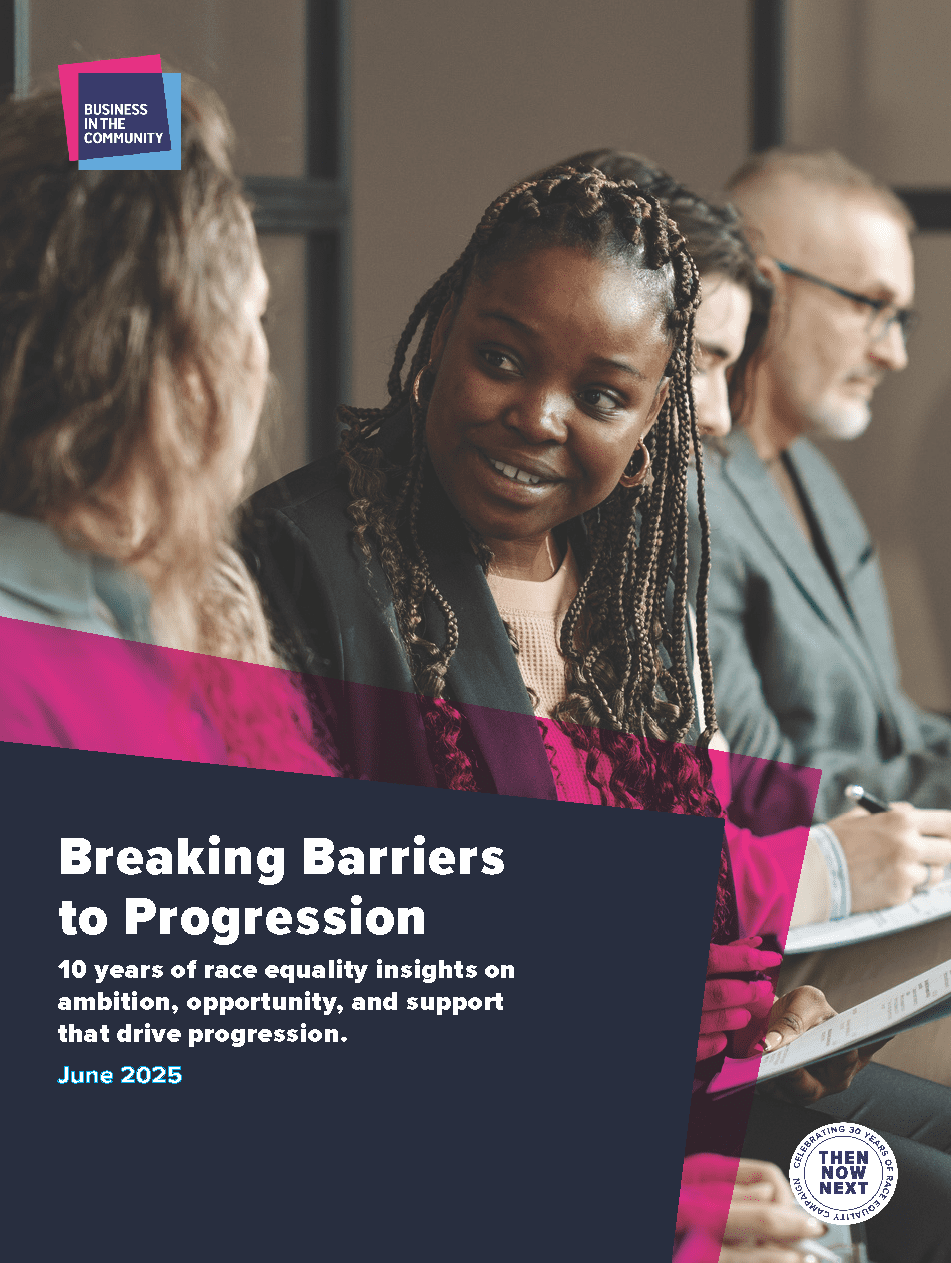
Breaking Barriers to Progression
Explores how ethnically diverse employees experience career progression in the UK, drawing on ten years of surveys, insights, and lived experiences.
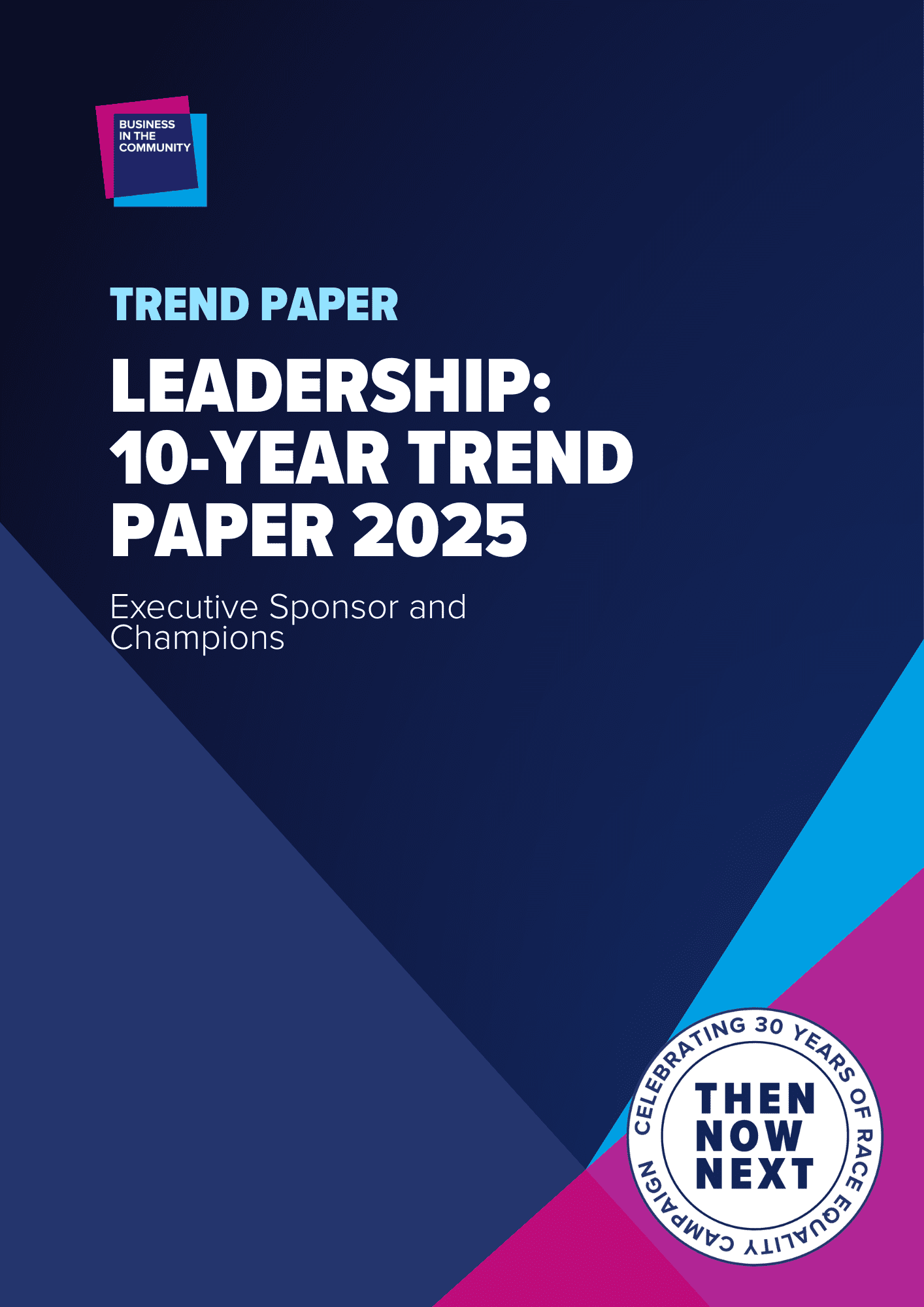
Leadership: 10-Year Trend Paper
Draws on 10+ years of data, highlighting the importance of executive leadership, mentorship, and inclusive practices in driving race equality in UK workplaces
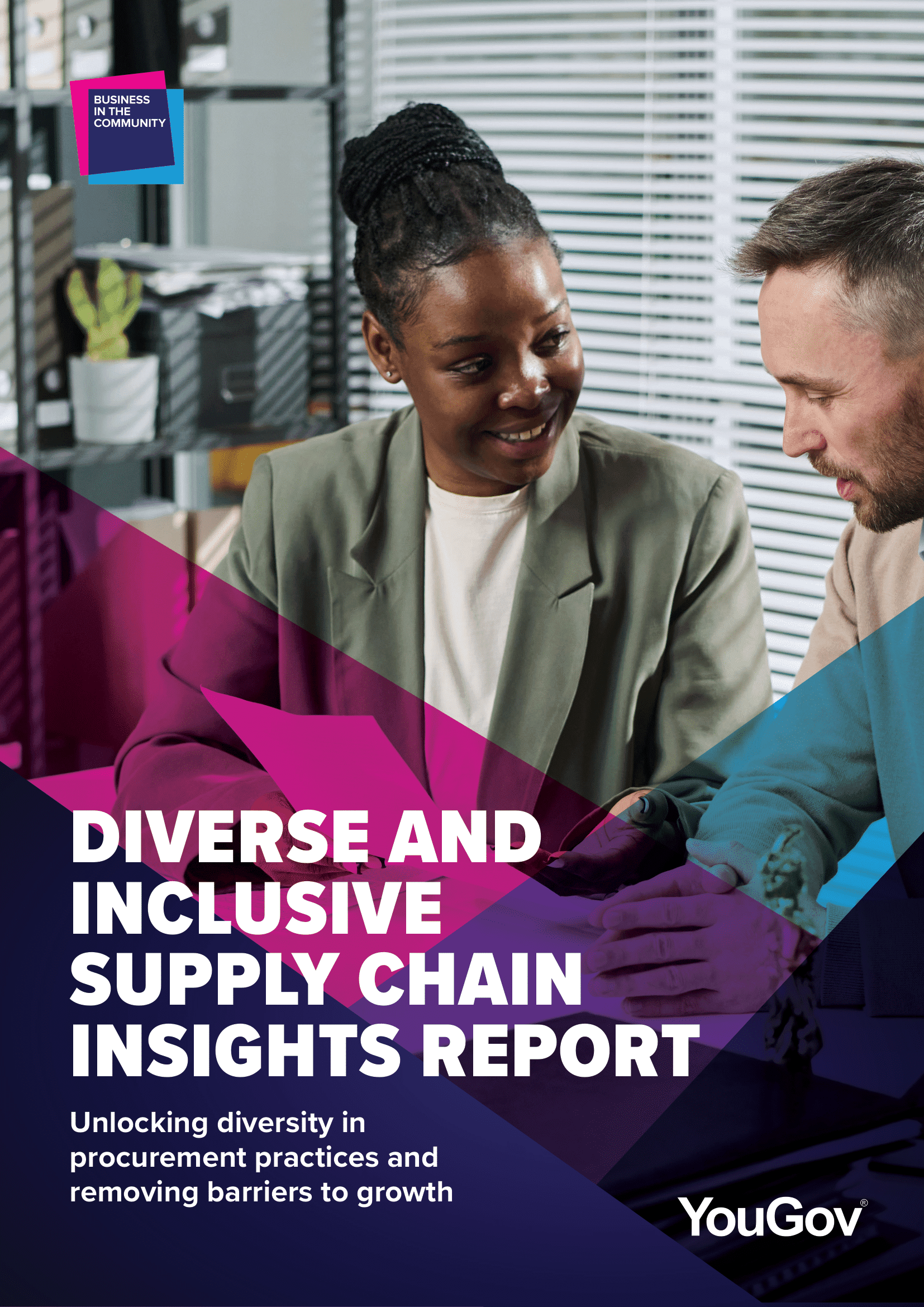
Diverse and inclusive supply chain insights report
Provides key insights into small business needs within large supply chains and offers a deeper understanding of the procurement sector’s expertise.
7 actions for improving the equality of opportunity in the workplace
The Race at Work Charter outlines seven key commitments to advance racial equality at work. Open to all organisations, these actions include: supporting young people into quality jobs and enterprise, collecting and using ethnicity data, ensuring fair recruitment and progression, fostering an inclusive culture, supporting diverse talent, promoting allyship, and embedding race inclusion in supply chains. By adopting these steps, businesses can build fairer workplaces where everyone can thrive. Explore the actions, supporting resources, and the Race at Work Charter Reset Guide to understand and implement the commitments effectively.
Leaders and employers support young people’s pathways into good work and enterprise
This includes marginalised young people who are Black, Asian, Mixed Race, or from other ethnically diverse and lower socio-economic backgrounds, who are not in education, employment, or training (NEET), helping them to access and progress in good work.
This may include offering structured work experience, apprenticeship opportunities, skills development opportunities, mentoring and coaching support.
Resources to take action:
Capture ethnicity data and publicise progress
Capturing ethnicity data is a crucial step towards an organisation reporting on pay and tracking performance on recruitment, access to development opportunities, retention and progression. This data is important for establishing a baseline to measure progress and impact of policies in the workplace.
Resources to take action:
Commit at board level to zero tolerance of harassment and bullying
Leaders at the top commit to tackling racial harassment and bullying with internal and external stakeholders. In BITC’s Race at Work Survey 2025, 20% of ethnically diverse employees (1 in 5) reported having witnessed or experienced racial harassment or bullying from managers. 22% (more than 1 in 5) reported this from customers, clients, service users and contractors.1. 31% of ethnically diverse employees said they had witnessed or experienced racial harassment or bullying from customers, clients, service users and contractors2. Leaders at the top commit to tackling racial harassment and bullying with internal and external stakeholders.
Resources to take action:
Inclusive leaders and managers ensure fair access to opportunities and development for everyone in their teams
Actions should include setting performance objectives for leaders and managers with a responsibility to promote conscious inclusion and fair access to opportunity for all staff. Building teams where the voices of ethnically diverse colleagues and those from lower socioeconomic backgrounds are included in decision-making, and young people entering the workplace can grow and develop new skills.
Resources to take action:
Inclusive leaders take action that supports Black, Asian, Mixed Race and ethnically diverse employee career progression
Include fair access to development opportunities, facilitating two-way mentoring, sponsorship and coaching especially where this intersects with employee ethnicity, gender and/or lower socio-economic backgrounds. Include developing skills and career progression planning for young and entry-level employees.
Resources to take action:
Support employees to progress from allyship to solidarity.
Support employees to progress from allyship to active solidarity. Stand with Black, Asian. Mixed Race and ethnically diverse colleagues in the workplace. Promote fairness, equality, inclusion, and belonging in workplaces and in local communities. 51% of employees said they would like support to progress from allyship to solidarity.
Resources to take action:
Include Black, Asian, Mixed Race and ethnically diverse-led small business, founders and enterprise owners in supply chains.
Employers include diverse-owned businesses, founders and enterprises in their supply chains, monitoring fair and timely payment and contract value. These actions will contribute to creating role models for young people and the wider community, as well as increase economic inclusion.
Resources to take action:
Latest resources

Leadership: 10-Year Trend Paper
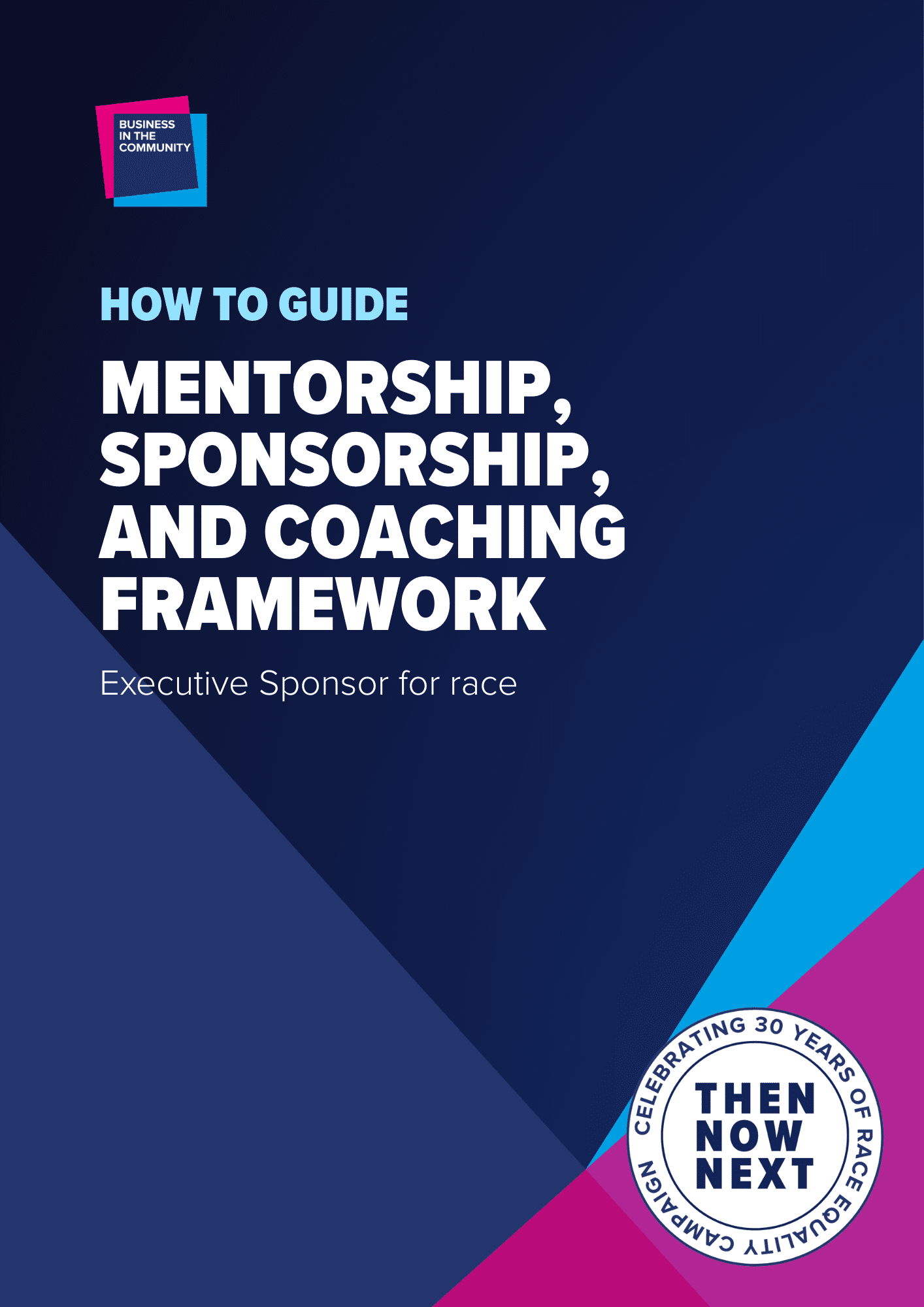
Mentorship, Sponsorship, and Coaching Framework
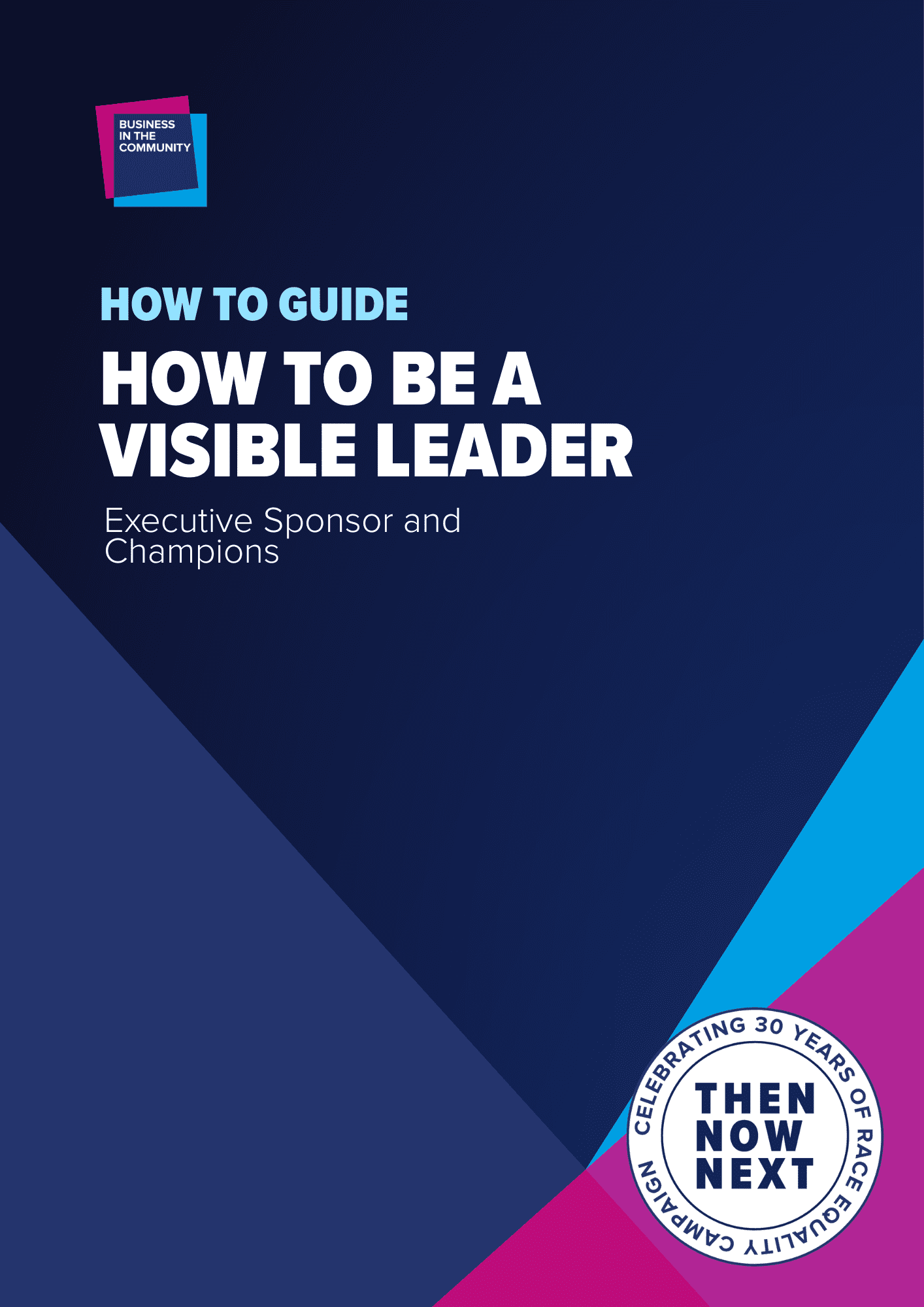
How to be a Visible Leader
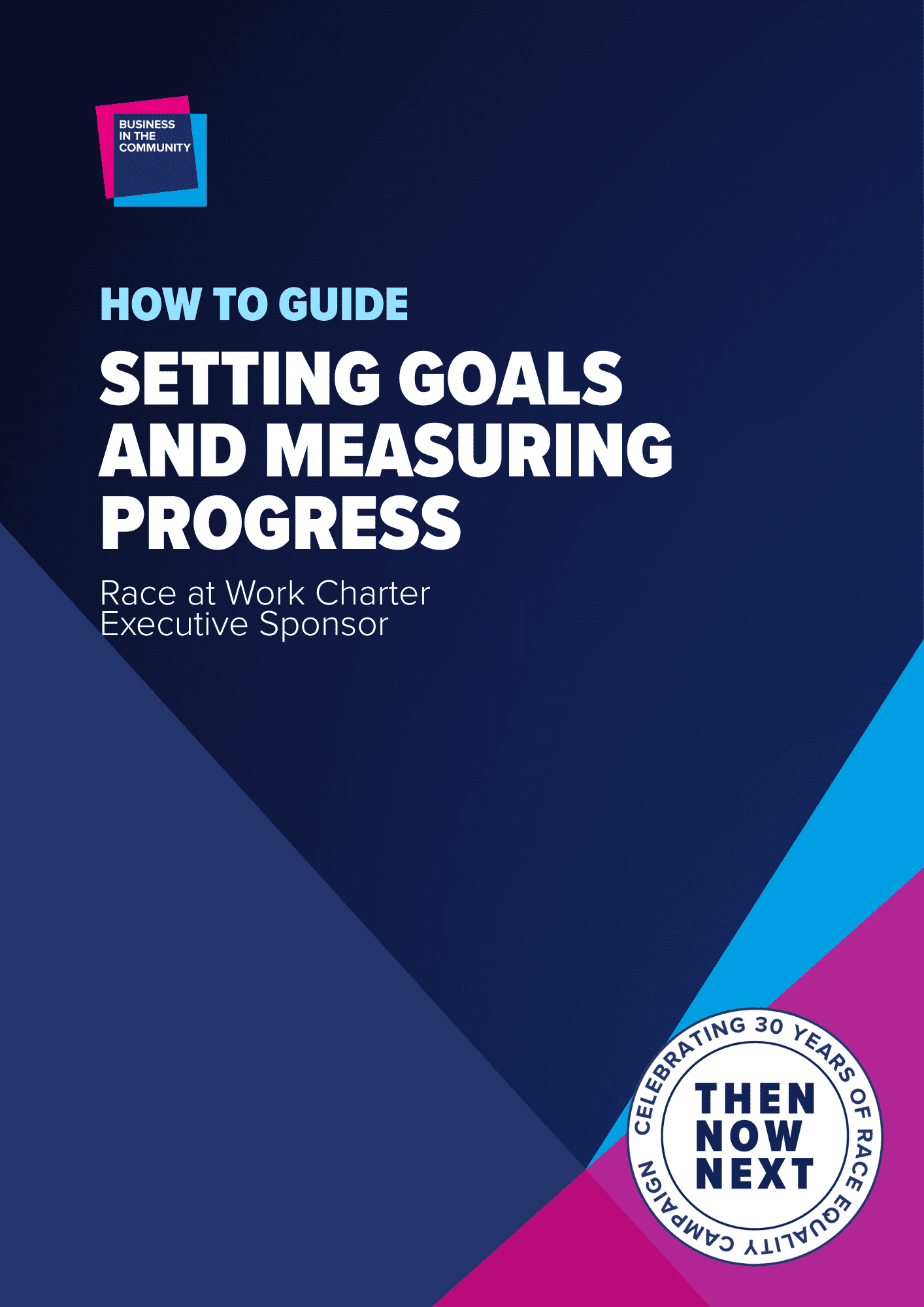
Settings Goals and Measuring Progress
Additional resources
Race reports
Race at Work Charter 2023 Survey Report: 5 Years On
A series of reports outlining employer progress on the seven Race at Work Charter commitments, using insights from the 2023 Race at Work Charter Survey.
Race at Work 2021: The Scorecard Report
Examines how UK employers are progressing against the recommendations set out in the McGregor-Smith Review, with insights from the 2021 Race at Work survey.
Race at Work Charter 2020 Survey Report
Presents the actions undertaken by the 114 employer participants of the 2020 Race at Work Charter Survey, as well as key findings and case studies.
UK employment and socioeconomic factors
UK Employment and Socioeconomic Factors by Ethnic Group
Focuses on the legal aspects of ethnicity pay gap reporting for General Counsels, including data protection and employment issues. Co-written with Hogan Lovells.
Windrush Generation: employment and socioeconomic factors
Examines the workplace progress of the Windrush generation, finding disparities in employment and pay, and recommends actions for employers to take.
Regional Insights on Race
Insights into the most diverse locations in different regions and nations, using Census 2021 data, to help organisations make informed decisions on race equality.
Supporting ethnically diverse employees and inclusion allies
Manager’s Guide to Supporting Ethnically Diverse Women
Practical tips for managers to support support the mental health and wellbeing of ethnically diverse women in the workplace, designed in partnership with industry experts.
Self-care and Wellbeing for Ethnically Diverse Women
Self-care strategies to support the wellbeing of ethnically diverse women, helping them recognise, and develop coping mechanisms for mental health challenges at work.
Anti-racism and Allyship in the Workplace: A guide
Provides tools for organisations to build anti-racist workplaces, fostering allyship and addressing inequalities through actionable tools for meaningful change.
